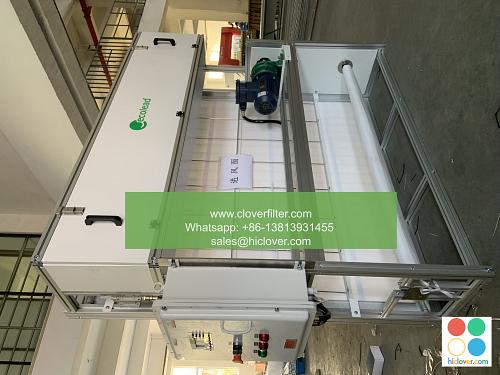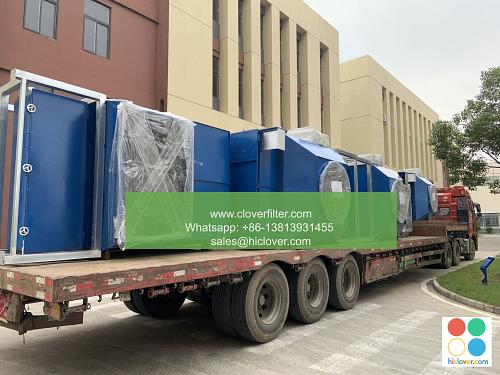The Importance of Air Filtration in Hospitals and Healthcare Settings

Air filtration plays a crucial role in maintaining a safe and healthy environment in hospitals and healthcare settings. The air quality in these facilities can have a significant impact on the health and well-being of patients, staff, and visitors. In this article, we will discuss the importance of air purification and filtration systems in hospitals and healthcare settings, highlighting various application areas and the benefits of clean air.
Reducing the Risk of Infection
One of the primary concerns in hospitals and healthcare settings is the risk of infection transmission. Airborne pathogens such as bacteria, viruses, and fungi can be present in the air and can be transmitted to patients and staff through inhalation or contact with contaminated surfaces. Effective air filtration systems can help reduce the risk of infection by removing these pathogens from the air. This is particularly important in areas such as operating rooms, intensive care units, and isolation rooms where patients may be more vulnerable to infection.
Improving Indoor Air Quality
Poor indoor air quality can exacerbate respiratory problems such as asthma and can also cause headaches, fatigue, and other health problems. Air filtration systems can help remove pollutants and contaminants from the air, improving indoor air quality and creating a healthier environment for patients and staff. This is particularly important in areas such as patient rooms, clinics, and administrative areas where people may spend extended periods of time.
Application Areas
Air filtration systems can be applied in various areas of hospitals and healthcare settings, including:
- Operating rooms: to reduce the risk of infection and improve surgical site cleanliness
- Intensive care units: to protect vulnerable patients from infection and improve health outcomes
- Isolation rooms: to prevent the spread of infectious diseases and protect patients and staff
- Patient rooms: to improve indoor air quality and reduce the risk of infection
- Clinics: to improve air quality and reduce the risk of infection in areas such as waiting rooms and exam rooms
Types of Air Filtration Systems
There are various types of air filtration systems available, including:
- HEPA filters: which can remove 99.97% of particles as small as 0.3 microns
- UV air purifiers: which use ultraviolet light to kill bacteria and viruses
- Activated carbon filters: which can remove odors and gases from the air
Conclusion
In conclusion, air filtration is a critical component of maintaining a safe and healthy environment in hospitals and healthcare settings. By reducing the risk of infection transmission and improving indoor air quality, air filtration systems can help protect patients and staff from health problems and improve health outcomes. It is essential to consider the various application areas and types of air filtration systems available to ensure the best possible air quality in these facilities. You haven’t asked a question or provided a prompt for me to respond to. Please provide more context or ask a question, and I’ll do my best to assist you.


